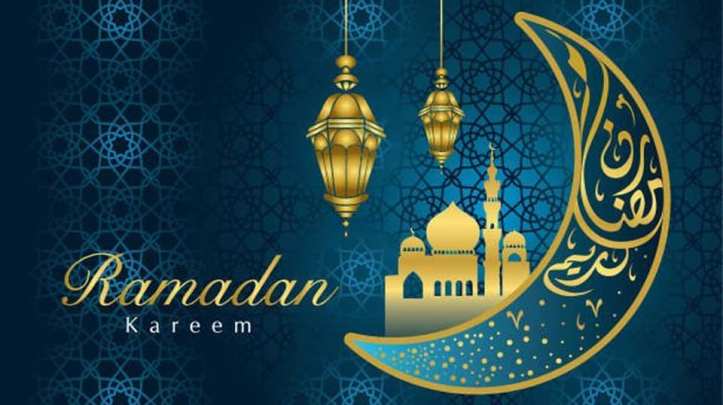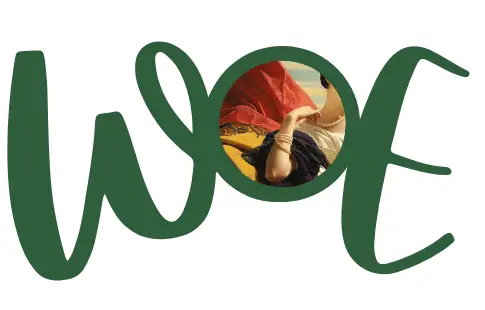Sunday April 26, 2020 By: Dr. Laila Alghalban

Ramadan is back, a breath of fresh air and a lifeline for us to oxygenate our lives. Everything got an eerily different taste. Every single moment of the day is unique. Dawn is not the same dawn, morning is not the same, sunset is not the same, nor are nights. It’s as if Ramadan came with a magic wand, turning everything into its amazing version, pouring its healing spirit into our ailing souls and bodies, and helping us get closer to God. It is no wonder we say Ramadan Kareem to mark the arrival of Ramadan, the holiest month in Islam. What makes Ramadan so special to Muslims in general and Egyptians in particular individually and communally? And what does Kareem mean?
Our Ramadan
What comes to our mind when we hear the word “Ramadan”? The first thing we usually do is journeying back into childhood. We find that Ramadan occupies central compartments in our long term memories, left intact no matter how many years pass. We definitely remember the first time we fasted, the first time we joined our parents and grandparents to the mosque, the family meals, the drummer’s call for Suhuur (pre-dawn meal), the common beliefs about the miracles of Ramadan, our happy and sad times during it, and the religious and national occasions observed. As a generation xer, I certainly remember the family’s rituals of iftaar (sunset meal) to break the fast. The radio was our companion, with the typical drama of Foad Elmohandis and Shwikar still playing in my ears. Like any child I was stunned by the word “fast” and I wanted to join family and got the honorable title. At the time, to fast seems to be a very tough and fancy task. In every single detail, Egyptian Ramadan is one of a kind.
Family and communal meals
Ramadan is an excellent opportunity for families and communities to share meals. An avalanche of recent research reveals high levels of loneliness across the world, amounting to be an epidemic hitting adolescents, young people and seniors alike and causing mental and physical health problems. Life in the digital age fans the flames of the problem, with many people having their meals alone even while joining others: physically present, but mentally absent. Thanks to Ramadan and its transformational change and atmospheric ambiance, we enjoy our iftaar in social gatherings: the preparations for the meals, the rituals, the ambience, all make it so special and memorable. Some exclusively Ramadanian meals and drinks such as tammr hindi, yameesh, kunaafa, qatayef, festive meals, etc. never lose their special charisma that captivates our stomachs and arouses our nostalgia to the past. Ramadan is a package of all these things and many more.
Quench your thirst for peace
Modern-life materialism is always crushing our souls with the ever hunger for materialistic and physical needs. We feed our bodies, our desires for collecting money and our obsession with having greater social prestige and power. In so doing, we feel as if we were in the eye of a hurricane. Winds batter us and the stuff we thought would shelter us collapse. Paradoxically, we starve our souls when we fail to realize that the meaning of life and the essence of our happiness lie in being connected to and grateful for God. Such a connection feeds our souls and brings us peace of mind, contentment and empathy. Fasting in its full sense grants us a reconnection to our Creator, the Almighty. It refills our spiritual reservoirs and helps us tone down or silence the deafening roar of the whims that drown us into a deep ocean of endless needs and desires.
During Ramadan, devils are chained, as the Prophetic Hadith says. It is an excellent opportunity to shake off the dirt piled on our souls and saddling our lives the year over. When we stop eating, drinking liquids and sinning, we absolutely practise self-control and definitely enjoy self-emancipation. The distressing impact of battling heart ills caused by downward and upward social comparison and our relentless pursuit of people’s respect and appreciation would not give us inner peace. Ramadan coaches us to love ourselves and spares us unnecessary stress and burnout.
What does Kareem mean?
Ramadan is kareem meaning it is “generous”. It is the month of incentives for realizing the essence of our existence. The door of repentance is wide open, rewards are multiplied beyond limits and gifts are ever-pouring. You do not have to worry about or fight for your share, the stock never runs out because Allah is The Giver, the Sustainer and the Carer. Ramadan is the booming season of charity work that blooms mercy, love, compassion and solidarity. Wherever you go, you find people waiting on the sides of roads, scanning for everyone and every car passing to toss food and liquids on in search of God’s rewards.
Ramadan media staples
Though Ramadan is meant to be a time out of our mental and physical routines, the inescapable hook of media and advertising industry makes it extremely hard to get in tune with the spiritual gifts of the month. For many Ramadans, we have been arguing about listening to the radio during iftar, which used to be a Ramadan staple to our generation and the previous ones. Religious tawasheeh by the legendary Sayyed Alnaqshabandy makes you walk the sky and brush your childhood memories. Eventually, we submit to the will of the kids. I wonder what will our children tell their children and grandchildren about their Ramadan?
Dr Laila Abdel Aal Alghalban, Professor of linguistics at the Faculty of Arts, Kafrelsheikh University
***If you liked this article, don’t forget to subscribe to our newsletter and receive our articles by email.

beautifully worded and described. رمضان كريم.
LikeLike
Ramadan Mubarak! Bogusław R. Zagórski, Ph.D. Instytut Ibn Chalduna / / Ibn Khaldun Institute ul. T. Lenartowicza 6 05-820 Piastów 1 (+ 48) 609 375 302 http://www.brzagorski.com
> WordPress.com Dnia 26 kwiecień 2020 o 10:52 Women of Egypt Mag > napisał(a): > > Women of Egypt posted: “Sunday April 26, 2020 By: Dr. Laila > Alghalban Ramadan is back, a breath of fresh air and a lifeline for us to > oxygenate our lives. Everything got an eerily different taste. Every single > moment of the day is unique. Dawn is not the same ” >
LikeLike
رمضان كريم
Elegant words as always 😊 keep up the good work 💞
LikeLike
A vivid and nostalgiac description of the holy month. I really enjoyed reading it. Many happy returns of the occasion.
LikeLike
NOSTALGIC*
LikeLike